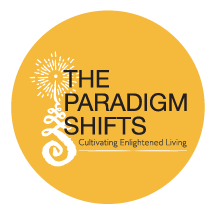A client of mine, Hui Zhong, called me yesterday somewhat distressed. She is in product management as an information analyzer for an international corporation headquartered in Silicon Valley, CA.
A few months ago Hui Zhong, pronounced hoy-zong, began reading a book by Robin Sharma “ The Leader Who Had No Title. She began practicing some of the exercises, which allowed her to stretch and expand her comfort zone to include more of her authentic leadership style. The dilemma though, is that as she exercises and stretches to expand her repertoire, she’s experiencing growing pains that bring with them discomfort, uncertainty, fear and insecurity. She is finding it distressful and uncomfortable to shift the way she is showing up in her work, uncertain if it will make her more attractive for promotions and all that goes along with them. She knows she’s on the right track with regard to cultivating greater professionalism and effectiveness, yet she is has doubts whether these traits truly make a difference in the corporate world where flash and charm often win the promotion. Is she really doing the smart thing if she’s wanting to gain more visibility and be acknowledged for what she brings to the role of leader? She’s in a dilemma.
As we change and grow “ as we discard what no longer serves, we find ourselves in the midst of a leap. It’s very exciting and disconcerting at the same time; with practice, the long term rewards will be ease and agility in growing and in evolving in to the person and the leader we say we want to be.
There are those who expect that with the right education and the right connections it will be easy to rise to the top. There are those who play the game the right way and anticipate that the right way will get them the outcome they want. No one really knows for sure, and too often we lose our souls in order to find out.
As Hui Zhong lets go of her suitable education, connections and playing the game appropriately in service to exploring authentic leadership styles, she is getting triggered and collapses into feeling anxious, weak, vulnerable and unworthy. In the first few moments, she can hardly stand. She reports though that she recovers in a matter of minutes.
Hui Zhong is a model of resiliency. There are many who cannot stand being triggered into feeling vulnerable, weak and inadequate, and they do whatever they can to avoid this experience. Their unwillingness to cultivate and strengthen this essential capacity will suffer from the effects of no promotion. Hui Zhong is taking personal and professional risks, that on the inside feels, sometimes, like she’s failing and will never recover. It’s a debilitating momentary feeling, yet she knows that to do it any other way is out of integrity.
This intense practice develops muscles required for the type of leaders most organizations are truly hungry for. What’s at stake for Hui Zhong is her personal identity as a winner and as a perfectionist. She’s putting it all on the line because she knows the degree to which her egoic-self is influencing her choice-making, which doesn’t serve her team or her organization in the way that has her feel like a real leader “ one who puts aside their own personal needs and desires for the sake of the people she works with and works for.
Even though there are tons of books on the market about leadership development, so few people actually take up the practice of shifting their personal perspective to something more. Personal gain vs. professional integrity; the experience and angst of cultivating self-awareness while developing leadership capacities that inevitably do lead to mastery; while eliminating manipulations and political motivations, which are inconsistent with corporate visions and statements of integrity.
I suggest to Hui Zhong that she herself to be the experiment “ an exploration. What makes her valuable to her company, in my mind, is that she is willing to be in the "I don’t know," finding out what’s beyond the games, and political motivations and manipulations that actually limit possibilities within most organization.
She is learning that she isn’t supposed to know or have the easier or right way to move through a transformative process such that she is in “ She is only to observe, witness and assess, noticing what works and what doesn’t; then make slight shifts in how she is being and what she is doing; and then, again notice, witness and observe. This is the path to mastery, innovation, inspiration, freedom and selfless leadership.
As anyone of us, like Hui Zhong, cultivates the resilience to move through this process we’ll be developing not only the wisdom and mastery but we’ll be able to empower others to explore, witness, and experiment too. This to me is the most powerful form of leadership “ making space for others to explore, experiment and discover for themselves innovative styles of leading.
The dilemma “ that choice-point between one type of success and the other, are each pulling Hui Zhong and keeping her on the fence, though this happens far less so than before. What she is currently practicing “ where she is putting her attention, will inevitable bring her into the light, because she is acknowledging and honoring her highest truth. My belief is that this is the sustainable, healthier and more effective way to lead and will inevitable be recognized for its value “ growing pains and all.
This is not an easy path, nor should it be. We will not cultivate strong and innovative leaders by having them travel the well worn path. To truly be a great leader, each of us will need to become the experiment, embracing the moments when our findings are thrilling and monumental in their effects.
